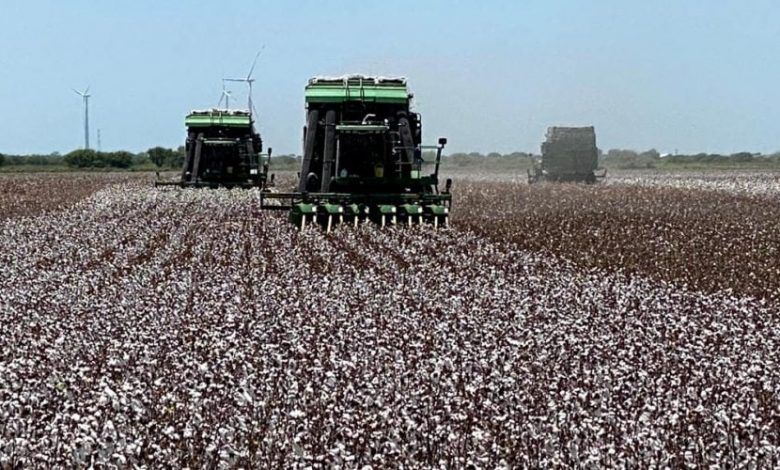Glyphosate import ban affects cotton production in Mexico

The glyphosate import ban affects cotton production in Mexico, the United States Department of Agriculture (USDA) said in a report.
Since November 2019, Mexico’s Ministry of the Environment and Natural Resources (Semarnat) has stopped unilaterally issuing import permits for the pesticide glyphosate, citing the precautionary principle.
Glyphosate is a widely used herbicide that controls broadleaf weeds and grasses.
Since 1974, glyphosate has been registered as a pesticide in the United States.
While the Mexican cotton sector faces a host of challenges, generating significant impacts on production in the 2020/2021 business year, reductions in demand for Covid-19 and impacts on the supply chain are likely supply in the textile industry continue until 2021.
According to the USDA, due to the lack of GM seed approvals, a glyphosate import ban is likely to affect pest protection in the near future in Mexico as current stocks are dwindling.
In addition, power cuts are affecting irrigation machinery and access to water for producers in the state of Chihuahua, the largest producer in the country.
Glyphosate
Also, from USDA analysis, reductions in cotton production are likely to recover fully with domestic supply stocks, as lower global and domestic demand for textiles has eased pressure for imports.
While the weather has been ideal during the growing season, reduced access to inputs for production, declining government support, and low global demand due to the effects of the Covid-19 pandemic are reducing production profits. observed in previous years.
The post-marketing year 2020/2021 cotton production forecast is 1,049 million bales, according to updated information from state plant health committees and grower associations, a 37% decrease from the marketing year. previous marketing and a little lower than previous forecasts.
The secretary of Semarnat in Mexico, Víctor M. Toledo, has mentioned on several occasions that he is promoting an agroecological public policy, which would include the suppression of agricultural inputs used to protect crops from pests and diseases.
This measure would represent a total ban on the use of glyphosate in the country, which would result in an increase in labor, an increase in costs for alternative protection from pests and diseases, and will likely result in lower yields, according to USDA estimates.
Cotton production represents 5% of glyphosate use in Mexico, of which 100% is imported and reformulated by Mexican companies.
Controversy
The litigation involving Monsanto’s Roundup non-selective glyphosate-containing herbicide products has resulted in negative publicity and sentiment and may result in similar lawsuits regarding glyphosate-containing products and / or other established plant protection products.
According to the American company Scotts Miracle-Gro Company, despite the weight of scientific evidence supporting the safety of these products, claims or accusations that your products or products that we market on behalf of third parties are not safe could adversely affect you and contribute at the risk of being subject to legal action.
The company manufactures a variety of products, including fertilizers, growing media, pesticides, and herbicides, and we also serve as marketers for some of Monsanto‘s Roundup brand consumer products.
On occasion, the company argued, allegations are made that some of these products have not met expectations, are incorrectly labeled, contain insufficient instructions, or have caused damage or injury to people or property.
For example, the company added, despite the weight of scientific evidence and regulatory determinations supporting glyphosate’s safety, recent litigation involving Monsanto’s non-selective Roundup herbicidal products containing glyphosate has generated negative publicity and consumer sentiment regarding these products and Roundup.
Brazil
In 2018, a Brazilian trial court ruled that new products containing glyphosate, a herbicide widely used in soybeans and other crops, were prohibited from registering in Brazil, and existing registrations would be suspended until the government reassesses their toxicity.
This decision also suspended the registration of other chemical products, such as the insecticide Abamectin and the fungicide Tiram.
For the Brazilian Minister of Agriculture, this decision would be a disaster for the agricultural industry and, therefore, the decision was the subject of multiple appeals.
On September 3, 2018, an appeals court reversed the lower court’s decision. Currently, the use of glyphosate is allowed. However, it cannot be guaranteed that it will continue to allow.
![]()

